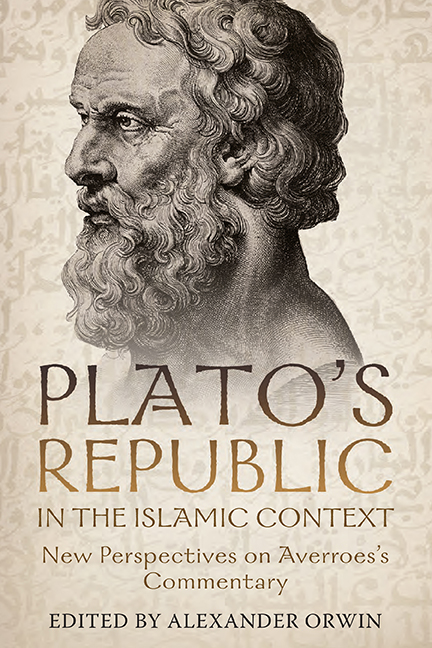Book contents
- Frontmatter
- Dedication
- Contents
- Introduction
- Part One Averroes and His Teachers
- Part Two Poetry, Philosophy, and Logic
- Part Three Law, Religion, and Philosophy
- Part Four Wisdom, Government, and the Character of the Political Community
- Part Five Averroes’s Reception in Europe
- Selected Bibliography
- Notes on the Contributors
- Index
13 - Three Readings of Averroes’s Commentary on Plato’s“Republic” in Medieval Jewish Thought
Published online by Cambridge University Press: 26 May 2022
- Frontmatter
- Dedication
- Contents
- Introduction
- Part One Averroes and His Teachers
- Part Two Poetry, Philosophy, and Logic
- Part Three Law, Religion, and Philosophy
- Part Four Wisdom, Government, and the Character of the Political Community
- Part Five Averroes’s Reception in Europe
- Selected Bibliography
- Notes on the Contributors
- Index
Summary
The ethical and political writings by late medievalJewish philosophers are generally seen to be rootedin two fundamental classical texts, Aristotle'sNicomachean Ethicsand Plato's Republic.Yet, regarding the Republic, medieval Jewish thinkerslikely had no direct access to it. It was Samuel benJudah of Marseilles's translation of Averroes'sCommentary on Plato's“Republic” into Hebrew in the 1320s thatgave Hebrew readers some access to the Republic and made it thecentral classical text on political philosophy forJewish thought. Indeed, it was used by Jewishthinkers for several hundred years thereafter. Thischapter will focus on the question of how Plato'sRepublic came toinfluence medieval Jewish thought; in doing so, itwill attempt to map out three distinct trends in howJewish thinkers of the medieval period interpretedthe Republic's coreideas.
Samuel Ben Judah of Marseilles and the Translation intoHebrew
The introduction of Plato's Republic into Jewish discussions on thenature of the political community took place afterSamuel ben Judah of Marseilles's translation ofAverroes's Commentary onPlato's “Republic” from Arabic intoHebrew was completed in 1320 and revised in 1321 and1322. Samuel came from an established family inProvence that had acquired wealth over multiplegenerations. He studied philosophy with Senor (Don)Astruc de Noves and translated works on logic andastronomy. The movement of translating the greatworks of science and secular philosophy from Arabicinto Hebrew, which had been started in Provence bySamuel ibn Tibbon (ca. 1165−1232) in the firstdecades of the thirteenth century and beenfurthered, in large part, by his son, Moses ibnTibbon (ca. 1195−1274), his son-in-law, JacobAnatoli (1194−1256), and his grandson, Jacob b.Makhir (ca. 1236−1304), was gradually coming to anend after the prodigious activity of Qalonimos benQalonimos (ca. 1286−1328) in the first decades ofthe fourteenth century. It had already begun totransform Judaism into what some have termed aphilosophic religion. The deficiency in this modelof philosophic religion is that it was overlyfocused on natural science and mostly ignoredpractical philosophy.
- Type
- Chapter
- Information
- Plato's Republic in the Islamic ContextNew Perspectives on Averroes's <i>Commentary</i>, pp. 277 - 296Publisher: Boydell & BrewerPrint publication year: 2022



